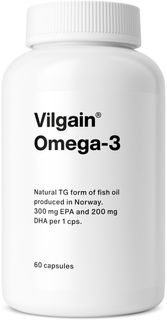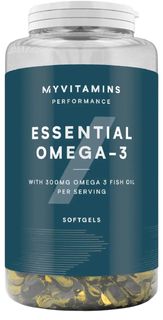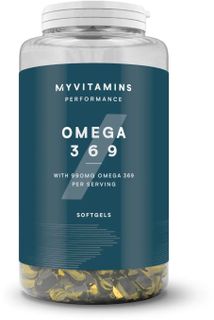What are omega 3s?
Omega 3 fatty acids are a group of health‑giving fats that have a beneficial effect on the functioning of our bodies. They are essential nutrients that our bodies cannot produce on their own, so their intake is dependent on diet. The most important omega‑3s are eicosapentaenoic acid (EPA) and docosahexaenoic acid (DHA).
Effects of omega 3
The main effect of omega 3 fatty acids is its direct (anti‑inflammatory) action against omega 6 fatty acids, which are much more common in the human diet and have a pro‑inflammatory effect (a form of the human body's defence mechanism). In addition, the intake of omega 3 fatty acids can:
- reduce the risk of cardiovascular disease,
- promote eye and brain health,
- fight depression and anxiety,
- promote proper child development during pregnancy,
- speed up recovery after sports activity.
Taking omega 3
The ideal intake of omega 3 is based on the intake of omega 6 fatty acids, which are found in most vegetable oils. The ratio of omega 6 to omega 3 fatty acids present in the diet should be no more than 3:1. However, a ratio of 20:1 is not uncommon today.
Sources of omega 3
Marine algae and phytoplankton are considered to be among the highest quality sources of omega 3 fatty acids. They are the source of the small crustaceans or oily marine fish (salmon, sardines and mackerel) that people include in their diet, either as a food or as a supplement.
A recent discovery has been the so‑called 'fish'. Krill oil which is made from small crustaceans that live in clean Antarctic waters and are not burdened by toxic metals. Krill oil is also many times richer in antioxidants. As a rule, foods of plant origin are not considered a good source of omega‑3 fatty acids (with the exception of seaweed).



